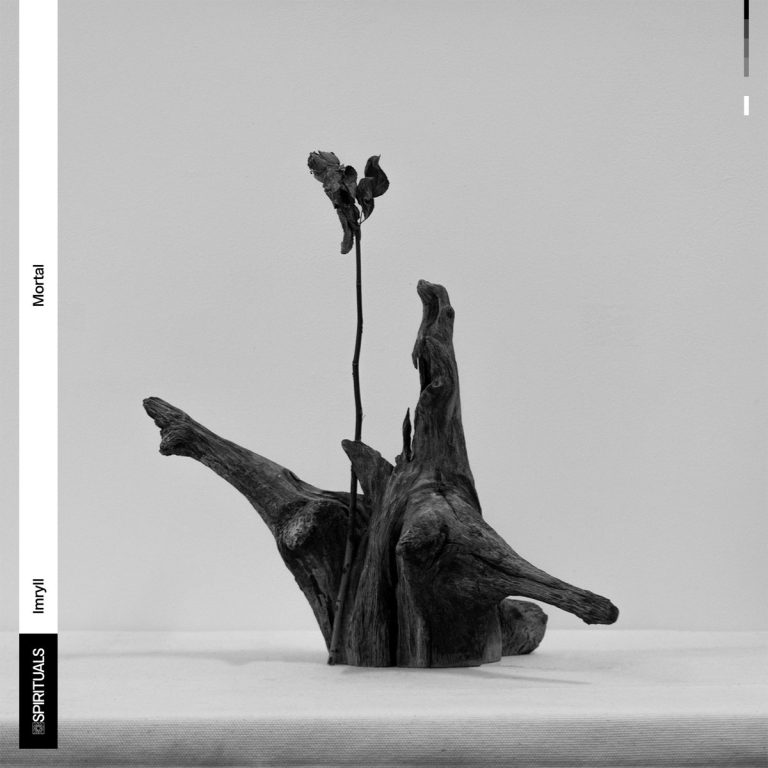If Mortal sounds like a nightmare or the soundtrack to some horror franchise, then that’s because Imryll “felt like [they were] living in one.” The Taiwanese artist’s debut record came from the after effects of strict, long-term lockdowns in their home country, coupled with living in a “creepy apartment in an area that’s a little bit run down” that faced an abandoned house that added to the sense of dread. Doubling down on these undulating feelings, Imryll crafts industrial ambience on Mortal that sounds both like it’s actively setting out to unsettle the listener, but also just like it’s trying to drown out the noise of the outside world.
When Mortal is at its best, it builds a kind of unsettling momentum over an extended period. “Deluge” builds off a percussion loop that sounds like a shuffling figure indeterminably climbing a neverending set of stairs; by its other end it feels like crooked branches of an old, barren tree that have gradually enveloped and formed around you. Referencing the likes of Toru Takemitsu’s new wave film masterpiece Woman in the Dunes and various horror soundtracks, Imryll sounds best when their influences are both on their sleeve and a starting point to build upon.
The other highlight is “Identifying a Motive”, a seven and a half minute piece that grows more sinister as the time passes. Disembodied voices flutter in the atmosphere as a machine-like hum and glow swirls around and around, evoking the ambient, eerie sections of Sigur Rós’ debut album Von. As the track builds to a head it feels like nothing is set to let up, and the noise is about to swallow you. Like a meteor entering Earth’s atmosphere though, it gradually disintegrates and breaks up, allowing a well-earned sense of relief for the listener.
Mortal’s four other cuts don’t fare poorly in comparison, but there is a certain lasting effect missing. “Backstabber” and “Cusp” feel like darkly hued ambient moments that need a certain honing. In passing they may unsettle (and even shimmer in an oddly beautiful way, like sheets of metal being bowed), but the heavy use of monochrome colours means fewer moments stand out. “Identifying a Motive” sticks in mind because it builds from a warming set of reds to an almost incandescent slew of fiery colours masked as a sort of blinding light; “Backstabber” sounds hollowed out and distinctly concrete coloured, while even the processed shimmer of the titular objects of “Hear the Bells” sounds pallid and washed out.
The record has to be credited for capturing its intended soundworld: this is a record of someone working by themselves. There may be the occasional clatter from the outside world (construction workers, shattering glass from a refuse plant), but these external noises feel like sounds that are an impetus to build upon sonically than any kind of humanizing contextual device. The visceral, industrial grinding loop of closing track “Foaming Mouth” sounds like a series of cacophonous noises drawn together and repeated until it becomes an embedded rhythm for the emerging airy, gentle bob of calm ambience to exist around.
There’s foreboding on Mortal, but never quite enough that it would feel like a go-to for such music. But for such a short record (its six tracks barely break half an hour), it offers a number of avenues for Imryll to consider; they could descend into dreamier states, go heavier still, or just fine tune the work they created here. There’s a presence of a nightmare on Mortal, but all too often it instead feels like a half-remembered dream. With time, Imryll will hopefully be able to capture a haunting feeling that is a bit more distinct.

